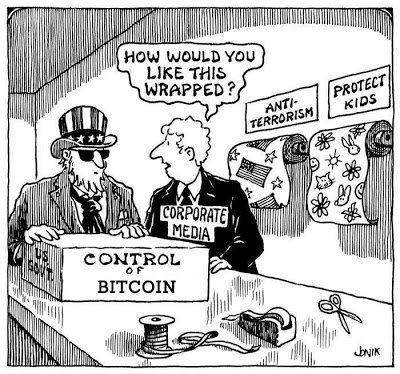Head of Germany's central bank fears Bitcoin may make next financial crisis worse, and is looking into creating his own sovereign cryptocurrency
The explosive popularity and rise in cryptocurrencies such as Bitcoin and Ethereum have finally reached the point where Wall Street, central banks, and sovereign governments can no longer ignore them. And as the global monetary and banking systems begin to crack, as seen for example last week in Spain where Banco Popular disappeared in a single day, central bankers are taking sides on whether cryptocurrencies are part of the solution, or part of the problem when the next financial crisis comes.
And when we say both a solution and problem all we need to do is look at the words spoken by the head of Germany's central bank on June 14 regarding Bitcoin's potential to make the next financial crisis much worse, and how they might need to create their own cryptocurrency as a backstop for their people and banking system.

As Citigroup's Hans Lorenzen showed yesterday, as a result of the global liquidity glut, which has pushed conventional assets to all time highs, a tangent has been a scramble for "alternatives" and resulted in the creation and dramatic rise of countless digital currencies such as Bitcoin and Ethereum. Citi effectively blamed the central banks for the cryptocoin phenomenon.
Weidmann had a different take, and instead he focused on the consequences of this shift towards digitalisation which the Bundesbank president predicted, would be the main challenge faced by central banks. In an ironic twist, in order to challenge the "unofficial" digital currencies that have propagated in recent years, central banks have also been called on to create distinct official digital currencies, and allow citizens to bypass private sector lenders. As Weidmann explained, this will only make the next crisis worse:
Allowing the public to hold claims on the central bank might make their liquid assets safer, because a central bank cannot become insolvent. This is an feature which will become relevant especially in times of crisis – when there will be a strong incentive for money holders to switch bank deposits into the official digital currency simply at the push of a button. But what might be a boon for savers in search of safety might be a bane for banks, as this makes a bank run potentially even easier.
Essentially, Weidmann warned that digital currencies - whose flow can not be blocked by conventional means - make an instant bank run far more likely, and in creating the conditions for a run on bank deposits lenders would be short of liquidity and struggle to make loans.
“My personal take on this is that central banks should strive to make existing payment systems more efficient and still faster than they already are – instant payment is the buzzword here,” the Bundesbank president said. “I am pretty confident that this will reduce most citizens’ interest in digital currencies.”

And while there is still time for the game between centralized and decentralized money to be played out, one has to honestly ask if they thought that central banks and sovereign governments would really allow a private form of money to usurp their control and authority, and in the end either not try to ban it, or co-opt it with one of their own that they declare as legal tender.